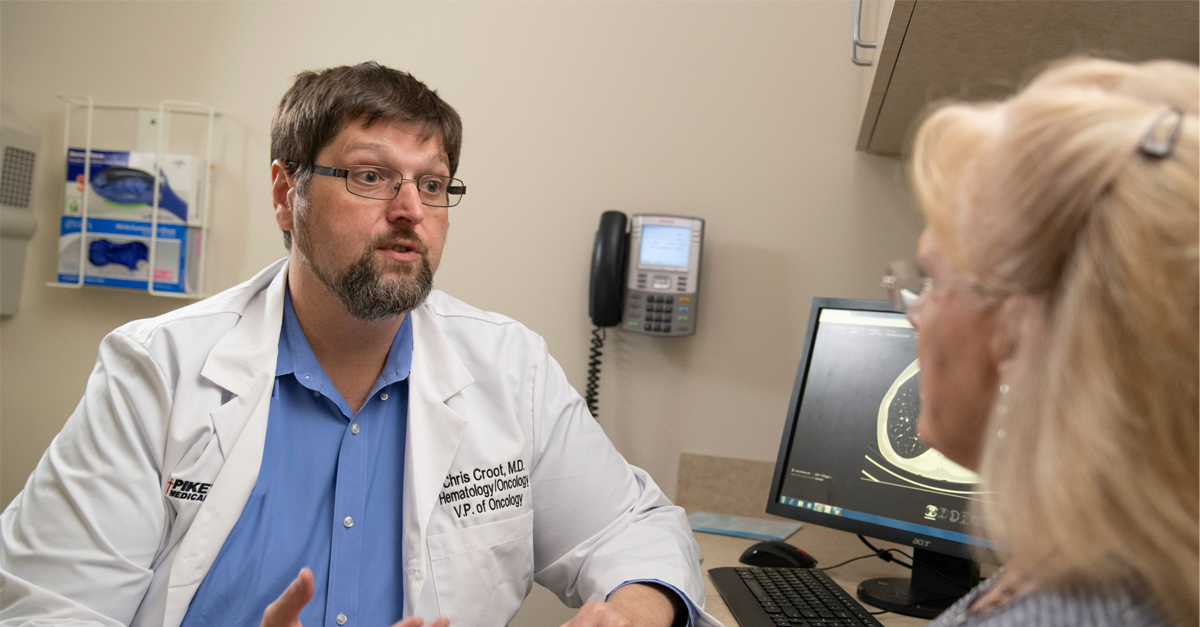
Lung cancer kills more Kentuckians every year than the next eight most common cancers combined. Pikeville Medical Center (PMC) is working to reduce lung cancer incidences and deaths in the state through advanced screening technologies.
“Of all the cancers that are treated at PMC, we see more cases of lung cancer than any other,” explained Vice President of Oncology and Hematologist/Oncologist Christopher Croot, MD.
The American Cancer Society reports that smoking is the main cause of all lung cancer, which contributes to roughly 85 percent of all lung cancer deaths.
“Smoking elevates the risk of lung cancer, as well as many other cancers,” explained Dr. Croot. “Also, those who are smokers typically have poor lung function, making it difficult to treat the cancer aggressively.”
Lung cancer forms in the tissues of the lung, usually in the cells lining the air passages.
“Small cell and non-small cell are the two main types of lung cancer,” said Dr. Croot. “Small cell is more aggressive and more likely to spread beyond the lungs. Non-small cell cancer is more common, grows slowly and is less likely to spread.”
The goal is to detect lung cancer at an early stage when the patient is showing no signs or symptoms. By the time symptoms are present, lung cancer has often already spread throughout the lungs, or in some cases, to other places in the body. PMC offers low-dose CT scans, which are more effective at detecting lung cancers early.
“Low-dose CT is more effective at detecting lung cancers than a chest X-ray,” said Dr. Croot. “Low-dose CT screening of the chest, much like mammography, colonoscopy and Pap smear, has been shown to reduce mortality in the smoking population and increase the survival rate.”
Data shows that using low-dose CT is four times more likely to pick up a mass than a traditional chest X-ray, allowing for earlier detection and a better chance at survival.
While a chest X-ray served as the previous method, this improved technology employs a low-dose of radiation to make a series of very detailed pictures of the lungs, scanning the body in a spiral path. This gives doctors additional details, allowing them to see even the smallest cancer growth.
Lung cancer can be difficult to spot because symptoms are non-specific. Some symptoms can include: chest pain, shortness of breath, wheezing, coughing up blood, feeling very tired all the time, weight loss with no known cause and coughing that gets worse and doesn’t go way.
If these symptoms persist in someone with a history of smoking, consult with a physician immediately.
With the rising cases of lung cancer patients at PMC, the Leonard Lawson Cancer Center has brought on more physicians over the past year to handle the patient numbers. The Cancer Center is fully staffed with four hematologists/oncologists, two radiation oncologists and a surgical oncologist.
To learn more about lung cancer screenings or to schedule an appointment, call the Leonard Lawson Cancer Center at 606-218-2212.









